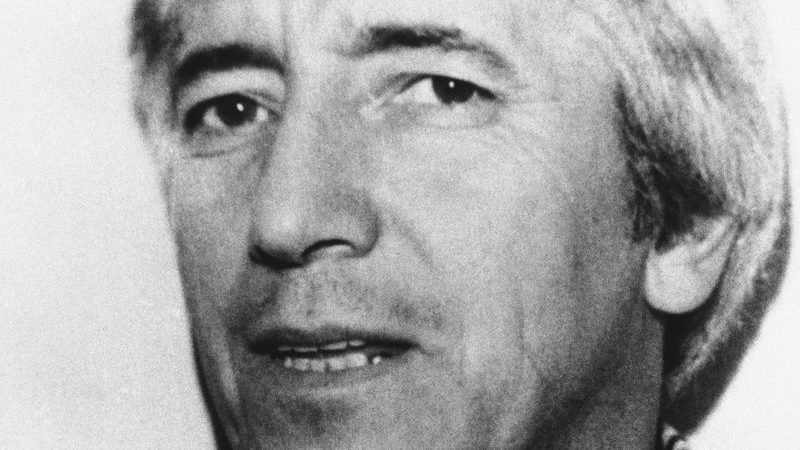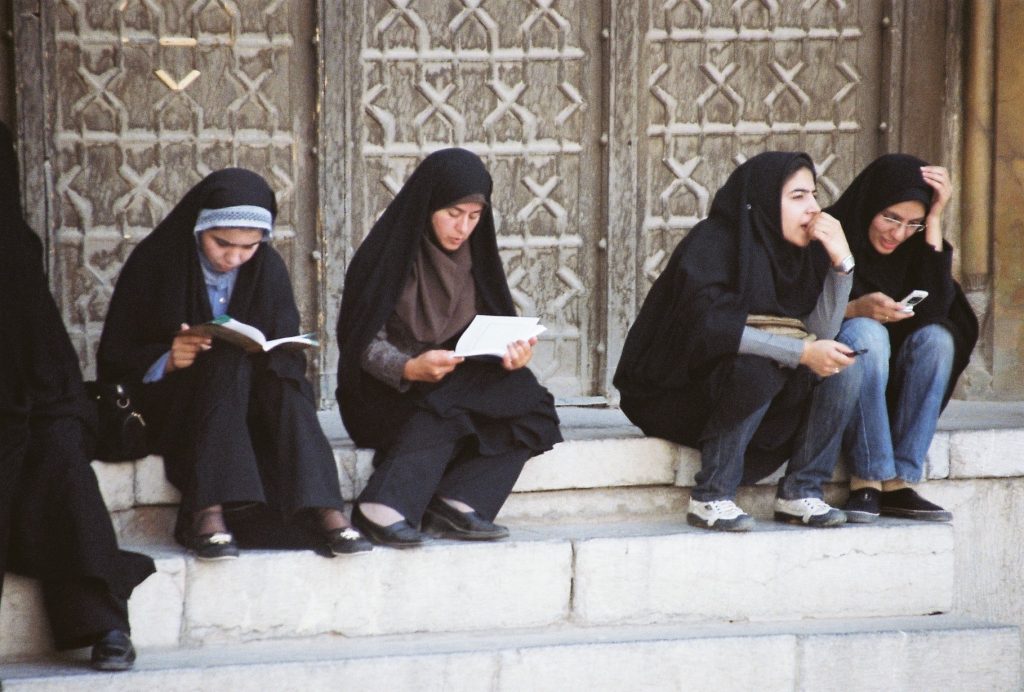Translated by Dimiter Kenarov
I wrote this closing chapter of my In Absentia Reports a long time ago in an attempt to explain the circumstances that led to my “defection.” Just recently, however, I received news of my father’s passing in Bulgaria. It was precisely the pain of his loss and the impossibility of being next to him in his final days that helped me recognize clearly what I had been trying to describe all along in a roundabout fashion, but which in the end boiled down to this: a feeling of revulsion.
Last Sunday, at ten in the morning, some 2,500 kilometers from Sofia’s September 9th Boulevard, I followed in my mind the funeral procession of my father’s casket. I saw, as if I were really there, the faces of people – relatives, friends, and acquaintances – and walked in their steps, recognizing each one of the houses they were passing by. I followed the tears of my mother and the words of the priest, desperately hoping that all this was just a bad dream. But when the dreadful hour struck, at eleven, and the earth claimed forever the person who had given me life, all of a sudden I felt crushingly helpless. The truth of the matter was that neither I, nor my brother, nor our wives and children were where we should have been. For so many years, we hadn’t been able to visit him and he wasn’t allowed to visit us either. All those years he lived in the hope of an encounter that never materialized. And the feeling of revulsion came to me at the moment, when I imagined how terribly disenfranchised he must have felt in the days before the end. Thinking about this disenfranchisement, this denial, this slap, if you will, in the face of the most common and cherished human impulses, I recognized the very same feeling that inevitably forced me abroad. This wasn’t about some ideological, political, or aesthetic conflict, but about the callous trampling of the rights and feelings of one simple person. My father was your typical Bulgarian everyman, one of the millions of nameless, hardworking, and decent Bulgarians with old-fashioned ideas about honesty and dignity. In his own way, he tried to accept, explain, and grow used to the unenviable fate of all Bulgarians in his position. But what he was unwilling to accept, explain, or grow used to, was the prohibition against seeing the people who were his own blood. He still remembered, after all, that he had been born a free man, but couldn’t escape the foreboding that he would die a serf.
I begin with the death of my father as the most immediate source of my feeling of revulsion, even though there are perhaps many other equally strong explanations. The whole environment in Bulgaria, when I lived there, was infused with similar emotions.
It was Sunday, June 15, 1969. A fateful year for Pisces, according to astrologists. The closed-door preview of my play I Was He at the State Satirical Theater in Sofia began at 11:30 in the morning. At 11:30 in the evening I was in Belgrade’s Hotel Excelsior. All of my plays were organized on the basic principle of two acts, the second one invariably negating the first. After everything I have endured since, I can now say that those twelve hours did not mark the boundary between two different plays, but only the end of the first and the beginning of the second act of one and the same play, whose genre could be described as “a contemporary tragicomedy with farcical interludes.” Simply put, this was “a play that often leaves you unsure whether you should laugh or cry.”
In spite of the long drive and the fretful hours preceding it, I didn’t feel tired at all upon my arrival in Belgrade. My agitation, incited by the events of the morning, by parting with the people closest to me, by the strange farewell loop I had taken around Sofia, turned into a big question mark about what the future might hold.
The question was not the fate of my play at the Satirical Theater. It was apparent to me as well as to everyone else involved that the play would be banned. It was their theater after all. The main issue at stake was that I had never managed (all my efforts notwithstanding) to identify myself with them. I always had a strong intuition, which clearly distinguished what was mine and what was theirs. Besides, this difference was often like that between fire and water, their coerced society allowing only two possible outcomes: either the fire is extinguished or the water evaporates.
The closed-door preview was arranged by the theater management with two ends in mind: to gauge the mood of the authorities and to solicit the support of the audience. The director was Metodi Andonov, while the producer, Neycho Popov, came straight from the hospital to watch the performance. Poor Neycho, who held on to the belief that you could stage a candid and biting satire without incensing a regime that had always opposed any form of genuine critique. I harbored no illusions and, it seemed to me, neither did Metodi. Of all artistic principles, the least applicable is that you can have your cake and eat it too. In great literature, in great art, the relentless law has always been that you either admire the cake or fatten yourself on it. You can never do both.
The reaction of the audience surpassed our wildest hopes. Partsalev’s performance was marvelous and the house was rolling with laughter. But the funnier the first act got, the gloomier certain faces in the seats became. At the intermission, a well-known colonel from State Security made his way over to me.
“Well, well,” he said, “what kind of a Czech play have you written?”
I told him that the play was Bulgarian and moved on. Afterwards, Stefan Tsanev, the theater’s chief playwright, came to inform me there would be a meeting of the theater board, together with representatives of the Culture Committee, to make a decision about the production. I told him I didn’t want to attend the meeting because I already knew the verdict. I asked him to represent me. The final curtain of the preview had met with the audience’s loud applause. Outside, on the sidewalk, my father, who had come to watch the performance, said to me, “This play will get you into lots of trouble!”
I went to have lunch at the Russian Club. Three months earlier, I had obtained a passport and visa to travel to Italy, but had repeatedly put off my departure because of the play. I decided to get on the road in the coming days. Around two thirty in the afternoon, Stefan came to me and told me that things were looking bleak. The production had been suspended for the time being. He appeared dejected but stern. At that moment, one of my more eminent friends entered the Club. He took me aside and asked, “Are your passport and visa in order?”
“Yes,” I replied.
“Then,” he said, “I advise you to leave immediately. I think today’s performance will create a huge uproar tomorrow and you may find yourself unable to travel. Get out of here for a month or two – it will all blow over eventually.”
I went home to pack a few things. My parents saw me off to the car, and I told them we’d meet again in a couple of weeks. Then I was on my way. I got to the ring road. A summer shower had just passed and, when the clouds cleared, the sky over Vitosha and all the lush greenery shone brightly under the sun. Instead of taking the direct route to Kalotina, all of a sudden I resolved on a whim to follow the ring road and make a loop around the whole of Sofia. The car was gliding over the drying asphalt and everything around me seemed strange and beautiful beyond words. Ruthlessly beautiful. As if nature itself had decided to flaunt all the precious treasures of this land, which I was destined to lose. Perhaps those condemned to death meet the final sunrise with the same unbearably drawn-out feeling that they are seeing everything for the last time.
“Look! You’ll never lay eyes on this land again, this landscape!” a treacherous voice was shouting in my head.
I hadn’t made any decision yet. One of the few lessons that life had taught me was not to decide anything in advance, but to let things sort themselves out according to their own internal logic. But this time, driving around Sofia, I felt that the decision had already been made – by either angels or devils, whoever controlled my fate.
A little after six I was at the border. All the customs officers had crowded together to watch the World Cup qualifier between Bulgaria and Poland. The officer on duty recognized me and politely invited me to join them by the TV. I apologized and said I was in a hurry. Once I passed the Yugoslav border control, I pulled over next to a field. I looked back toward Bulgaria and felt that natural beauty was exactly what sharpened my revulsion for that ugly existence that I and many like me had to lead. As if nature, history, and national spirit had set up very precise criteria for beauty and ugliness. I felt I couldn’t stand the environment I lived in anymore, the work I did, the relationships I had. I felt revulsion toward the world outside, as much as toward myself. I hadn’t felt joy in many years; everything had been poisoned in advance by that same feeling of revulsion. If you had an idea about yourself, if you thought you were one thing, and then discovered that slowly and inexorably you were turning into something quite different, there would probably come a time when you want to smash either the mirror or your own head. On a purely moral level, this was a feeling of double betrayal – of others and of oneself. Morality aside, I simply felt I had reached a dead end.
Walking around Belgrade, I thought it was truly impossible for me to stay in Bulgaria and remain myself. Simply to exist in the country required an endless chain of compromises. Even to struggle against compromises was in itself a compromise. The level of interaction between society and individuals was terribly vile. And the old law – that people gradually came to resemble the monsters they were fighting – appeared to apply perfectly. More and more often I’d discover in myself the same proclivities toward primitivism, instinctivity, callousness, and even cruelty so characteristic of the people I despised. Unlike many others, who were aware they were undergoing the same process but believed that it was just temporary, I had no illusions that my life could go back to its old form. Perhaps I was more self-centered than others or too concerned with my own contradictions.
That is why I can’t claim that mine was a case of civic integrity or courage; it was merely a matter of my own personal feeling of revulsion. If I had real civic integrity and courage, their most genuine expression would have been for me to stay in Bulgaria and attempt to fight from there, like so many people who are braver, more honest, and nobler than I still do.
Over the course of these reports, I took great pains to provide an accurate and objective picture of the life I witnessed. I was aware of my great advantage over writers living in Bulgaria – that no one directed or restricted the writing of these reports – and so I tried to say what many of them would have liked to say but couldn’t. Nevertheless, I was an active participant in that life and this may explain if, on occasion, my emotions have gotten in the way of objectivity.
Dimiter Kenarov is a freelance writer. He is the author of two collections of Bulgarian poetry and a book of translations of the selected poems of Elizabeth Bishop. His English-language writing has appeared in Esquire, Outside, The Nation, The Atlantic, Foreign Policy, The New York Times, and The Virginia Quarterly Review, among many others. He is currently at work on a biography of the Bulgarian dissident writer Georgi Markov (forthcoming from Grove/Atlantic).
Copyright: Annabel Markova
For more posthumous translations of Georgi Markov’s work read his essay On Patriotism, first published in our Fall 2019 Issue




